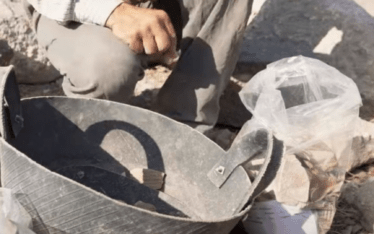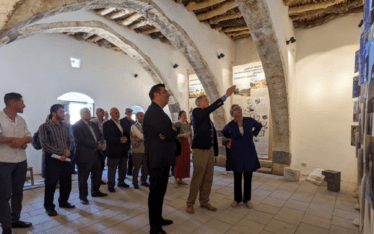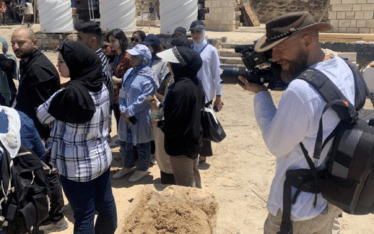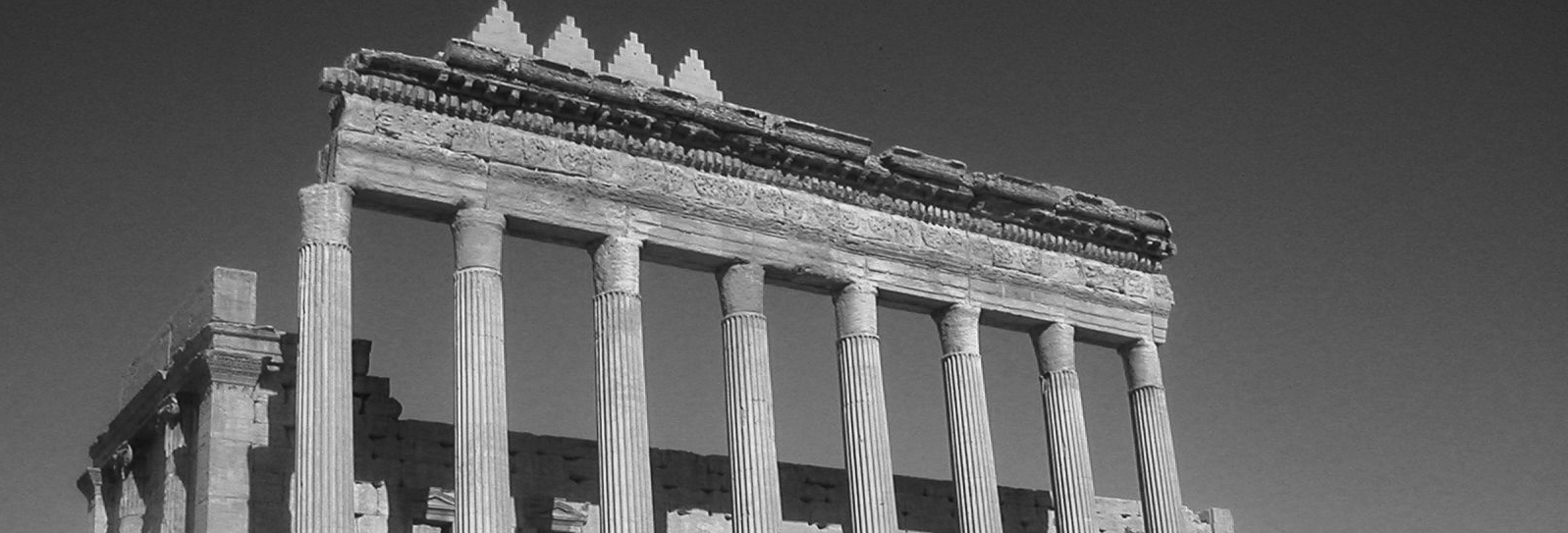
Mobile lab for safeguarding cultural heritage in crisis situations
- Home
- Mobile lab for safeguarding cultural heritage in crisis situations

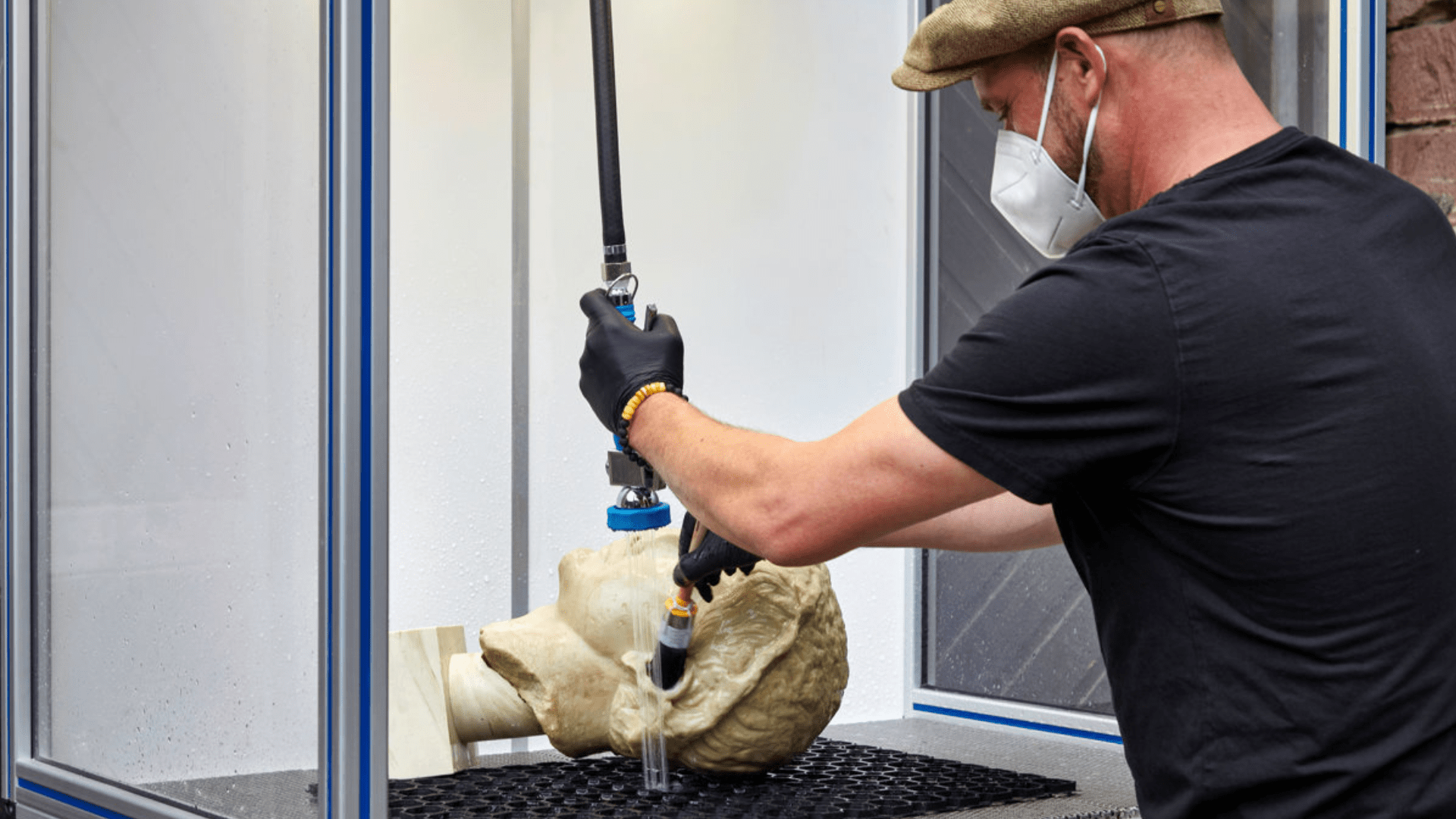
Specialists of the Cultural Heritage Response Unit (KGR) at Leibniz-Zentrum für Archäologie (LEIZA) are developing and trialling a multifunctional, scalable and air-transportable system for salvaging cultural property in disasters.
Movable cultural property, such as archaeological objects in museums and collections, can be put at risk by crises and natural disasters. Currently, specialists in restoration and conservation – working as part of the Cultural Heritage Response Unit (KGR) project – are developing and trialling a multifunctional, scalable and air-transportable system for salvaging cultural property in disasters. The mobile lab makes it possible to ensure the necessary initial safeguarding of movable cultural property in crisis situations. In an emergency, a large number of damaged objects can receive emergency conservation serially within a very short time frame. The development of these special modular tables is a central component of the Cultural Heritage Response Unit project. The rescue modules along with the associated, scientifically based minimal standard procedures, basic standards and workflows are being developed at the Leibniz-Zentrum für Archäologie (LEIZA), formerly known as the Römisch-Germanisches Zentralmuseum (RGZM), in cooperation with the German Archaeological Institute (DAI).
The modular tables, capable of universal use, can be rapidly assembled. Cultural objects are first of all registered at the lab site in a standard procedure, then cleansed in line with research-based emergency measures and prepared for transport and storage.
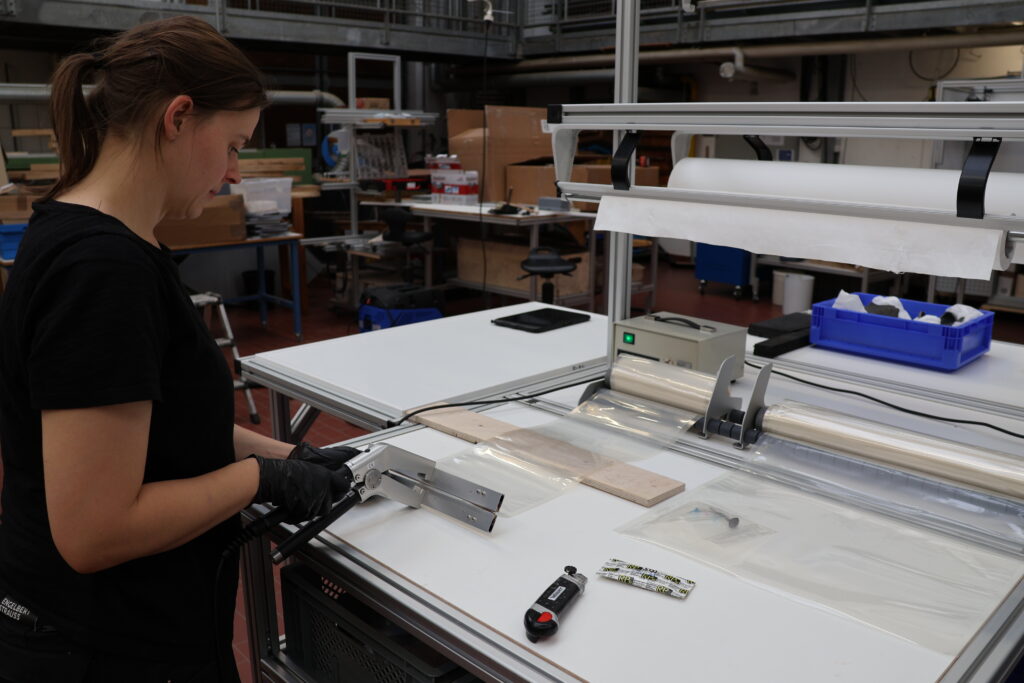
The basic module can operate anywhere, according to requirements, for instance as an IT table, depositing table for objects or as a supplementary work space for the packing module. In addition the basic module, when turned over, can perform the function of a transport vehicle. Other functions are offered by various special tables. An illuminated photo table can be used to document the condition of a salvaged item of cultural heritage on arrival and after emergency conservation. Another table is designed for wet-cleaning and allows the removal of dirt and contamination from objects. Silt deposits, for example, can be removed in this manner. The dry-cleaning module is for use when dust or rust needs to be removed from objects. By means of the packing module, cleaned objects are prepared for transport. The rescue modules developed so far constitute the minimum necessary basis of the emergency conservation that is contemplated. The development of modular tables is being expedited and will continue in future with a focus on objects of cultural heritage that are non-archaeological.




Weiterlesen:
Archaeological Heritage Network is made possible by many national and international partners. The Federal Foreign Office and the Gerda Henkel Foundation supports the network.
